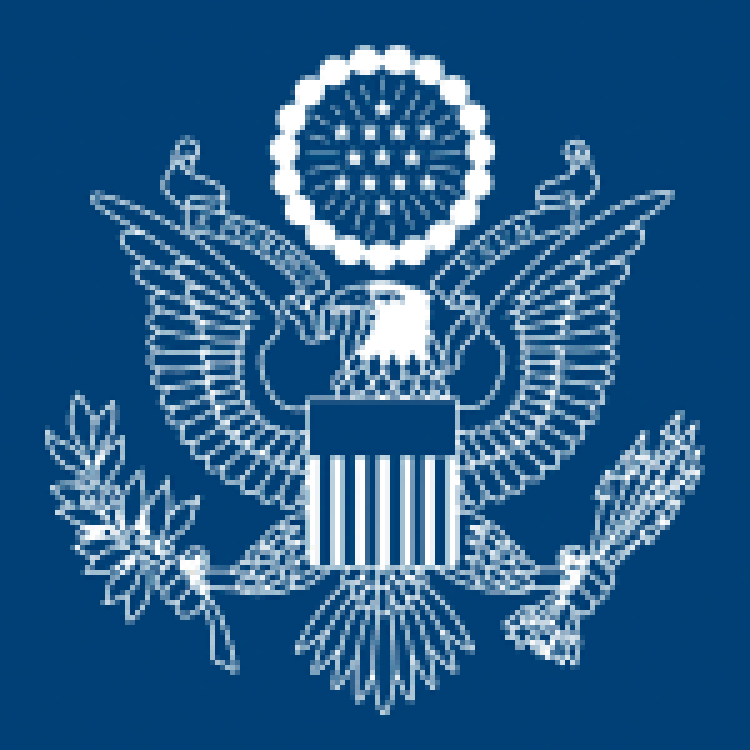Sri Lanka has finally ended it's forced cremation policy but has proposed to introduce laws to ban wearing face veils in public, continuing the ongoing discrimination faced by Muslims on the island.
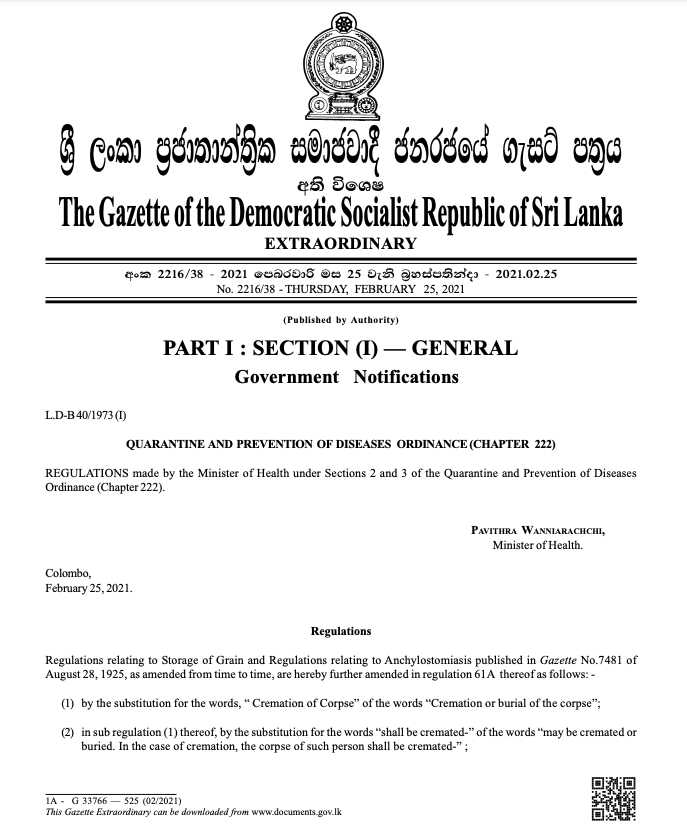
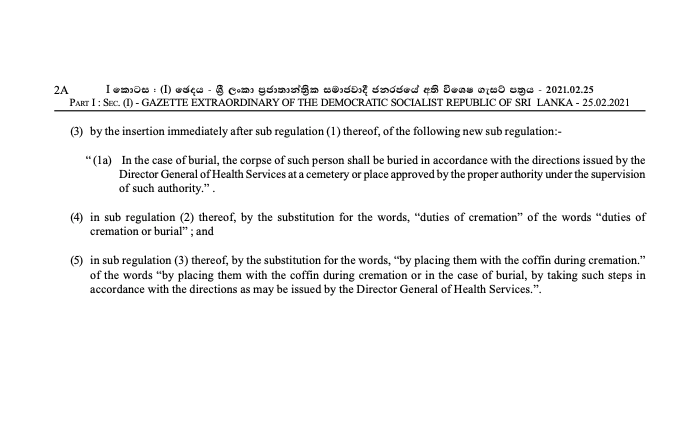
Following numerous domestic and international calls for the end to forced cremations, a gazette notification was issued yesterday stating that the burials would now be permitted. As the gazette was issued, Justice Minister, Ali Sabry reportedly said that a proposal was made to Sri Lanka's Cabinet to introduce laws to ban wearing face veils in public, claiming that it poses a threat to national security.
The policy, which made the cremation of all suspected Covid-19 deaths compulsory, came into effect last year following the outbreak of the global pandemic.
Since the outbreak, Muslims were denied the right to bury those suspected to have died from Covid-19, directly violating traditional Islamic burial rights. Sri Lanka continued to enforce the policy despite World Health organisation (WHO) guidelines outlining that Covid-19 victims can be cremated or buried.
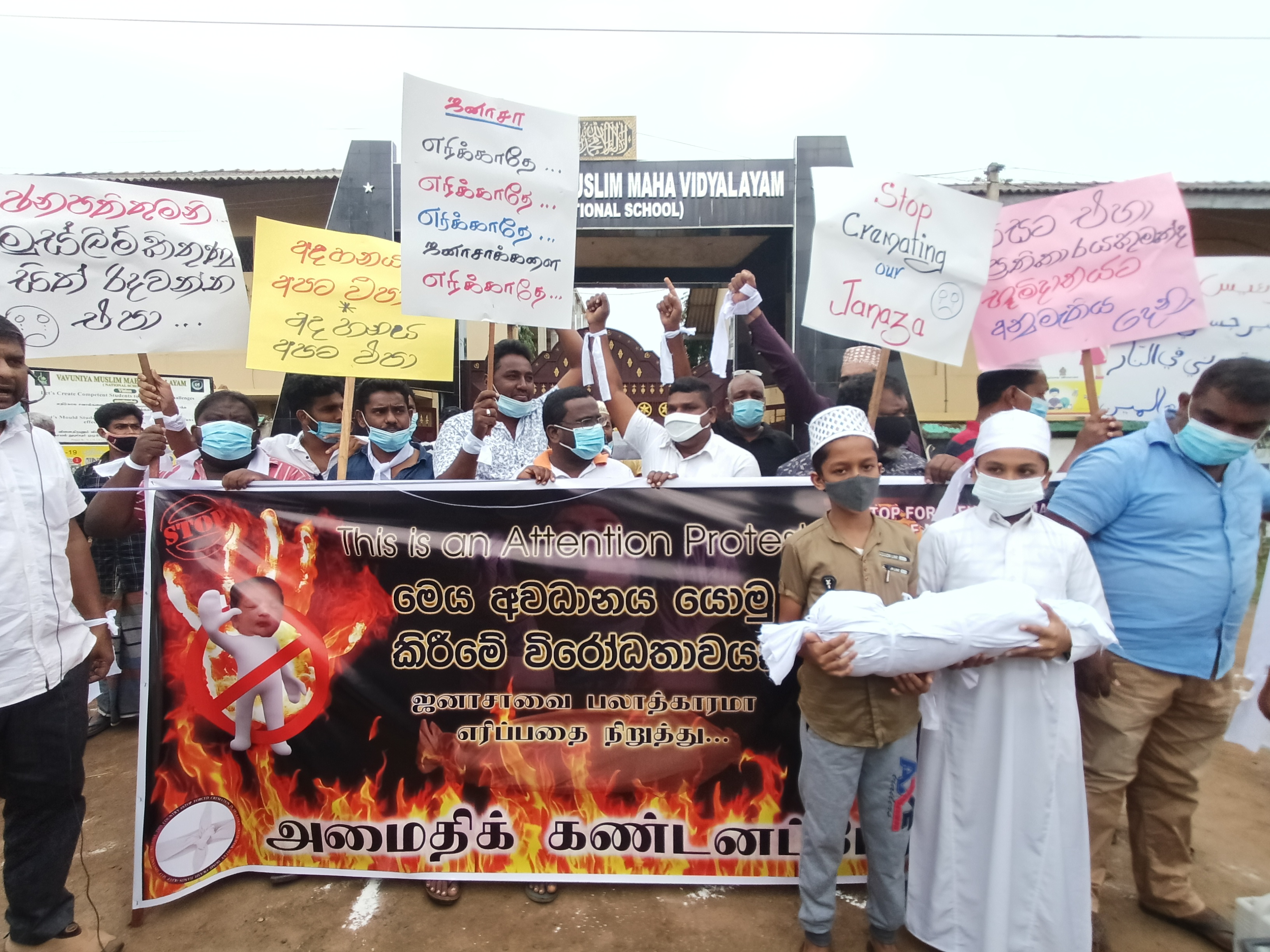
Protesters in Vavuniya demanding an end to compulsory cremations in December 2020
A recent assessment of Sri Lanka by United Nations experts demonstrated that ethnic and religious minorities are being increasingly marginalised in national policies and processes. They noted that the Sri Lankan government’s increasingly majoritarian, nationalist and populist rhetoric is threatening victims and minority communities.
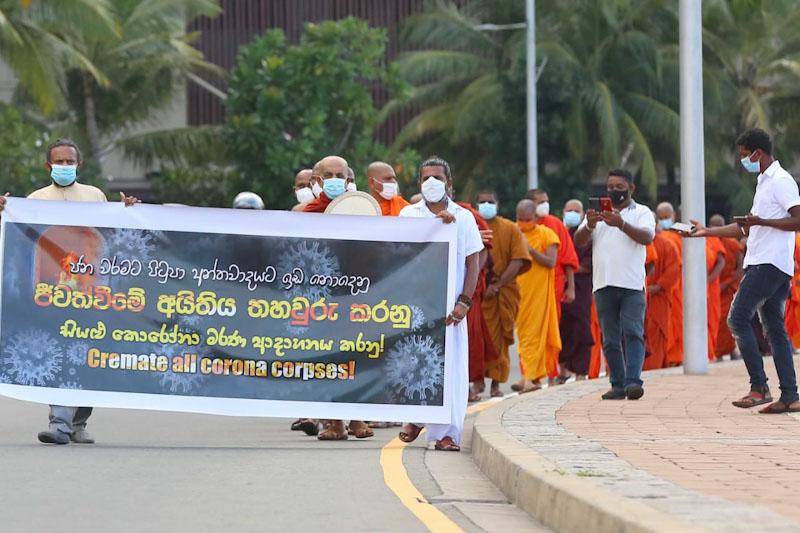
Photos of the Buddhist protests are provided by Pradeep Dilrukshana
While Tamil and Muslim politicians and civil society have carried out a series of protests in the North-East, demanding an end to the forced cremation policy, Sinhala Buddhist monks have protested in favour of the policy. Banners carried by demonstrators in the South, called for the government “not to sacrifice the lives of the entire people of the country for the narrow religious ends of extremists."
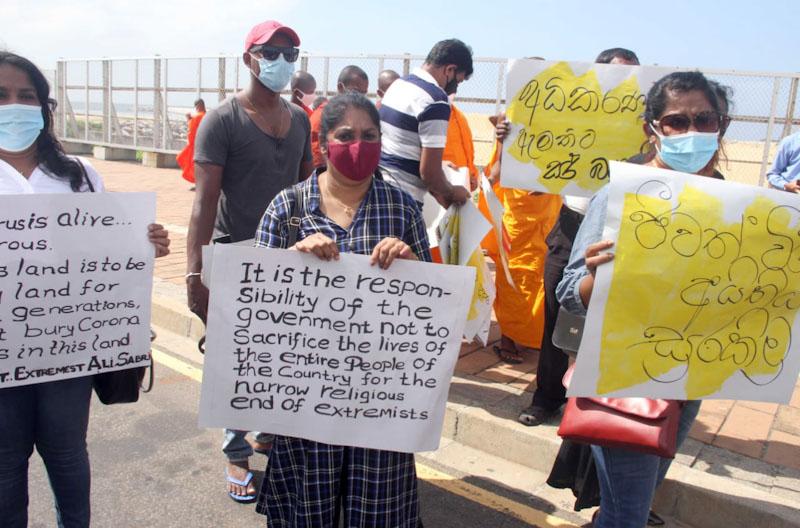
Amnesty International welcomed the Sri Lankan government's decision to end forced cremations but expressed concern over reports of the face veil ban.
"It is essential that one type of religious discrimination is not simply replaced with another. We urge the Sri Lankan authorities to reject this regressive step, which would only serve to stigmatize and marginalize Muslim women,” Yamini Mishra, Amnesty International’s Asia-Pacific Director, said in a statement.



